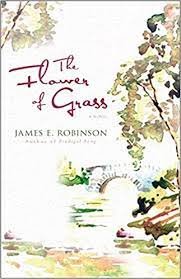Christian Homeschool Blog
Homeschooling can be challenging! Our Christian homeschool blog delivers tips and tricks for homeschooling your children.

To Read Or Not To Read--Never the Question
Are you back to school now that the holidays are over? Do you feel revived and recommitted to your homeschooling journey? Perhaps you added "read more" to your New Year's resolutions.

Working with Reluctant Writers, Tip 4: Read
Tip Four: Read.
How simple is this concept? Writing and reading go together like peanut butter and jelly. Skilled writers are readers. It makes sense, doesn't it? An artist learns to draw by first looking at pictures. An aspiring musician listens to music. Writers read.

What if the Reluctant Reader is Mom?
You've heard it so many times, it has become easy to block out. All the experts say, "Read to your children."
You nod your head in agreement and hold inside your objections. My toddlers are wriggly and don't want to sit still while I read. I don't want to sit still while I read. I can't do the voices. I don't have the time. I've tried, but she turns the page before I'm done. The only book he wants to listen to is "The Little Blue Truck," and I can't face it again. I'm not a reader, and my life isn't so bad.

Working with Reluctant Writers, Tip 3: Validate the Process
We teach that writing is a process, then ask students to follow a five-step procedure. They'd rather not complete those five steps. They'd much prefer do it in one step and if all we, as teachers, are interested in is the final product, we've provided scarce motivation to follow the five steps (discuss and gather information, write, revise, proofread, publish).

Working with Reluctant Writers, Tip 3: Discuss first.
I remember sitting with a blank piece of paper in front of me, pen in hand, and feeling paralyzed. There were ideas spinning in my head, but none worthy of a first sentence. The ideas swam around, without coming close enough that I could reel them in.

Book Review: The Flower of Grass
I am thrilled to begin a new feature on our TLP website offering book reviews not just for children, but for adults, too. My first review is for The Flower of Grass by James E. Robinson, an introspective work that will appeal to romantics and realists alike for its honest approach, realistic characters, and intriguing plot.

Tips for Working with Reluctant Writers
Picture the struggling writer: He sits at the table, a blank sheet of paper in front of him. He swings his feet back and forth, taps the pencil on the table, rubs his head and sighs. Because he is a compliant child, he sincerely tries to do his assignment. Because he is an energetic child, he wants to get it done so he can do something involving action.

Evaluating Writing
As the parent or teacher, you already know to check your students' writing for quality of content and mechanics. What else do you look for?

Writer's Planning Form
I added a new, down-loadable "freebie" to help students with their writing projects. The "Planning Form" can be accessed under the "Free Stuff" button.

Writing is a Process
Does your homeschool become a battlefield each time you assign a writing project? Helping your child understand that writing is a process can diffuse some of the tension and produce better results.

Grading Essays
Grading essays is often as hard on mom or the teacher as it is on the student. Is there a way to diminish the pain and increase the reward for both?

Grading Homeschool High School
So, you've bitten the bullet and decided not to end your homeschooling journey after junior high. You are entering the high school years and some of the things you embraced about homeschooling are being challenged, such as not giving grades. High school is a different animal, but not necessarily a scary monster. You should write course descriptions and keep accurate records. And, yes, you should give letter grades. A transcript doesn't carry much meaning to prospective universities if it doesn't have grades.

Giving Grades for Elementary Level Part 3
In previous blogs, we discussed potential difficulties with giving grades for elementary level work. We provided grading options. Today we will look at two more drawbacks to evaluating students' work by awarding letter grades.

Grading Elementary Level Students Part 2
In the previous blog, we began looking at how to grade, or evaluate, the work of elementary level students. The idea was put forth that giving letter grades is counter-productive to mastery learning and an obstacle to instilling a love of learning.

Home School: Giving Grades
Over and again at conventions, through emails and phone calls homeschooling moms ask about grading their children’s work. This blog is the first in a series focusing on giving letter grades. Today we will begin a discussion on grading elementary level work.

Welcome to TLP
It's been a long time coming, but our new website is finally operational. As with many new things, we may have glitches to work on; you can help by letting us know if something isn't working for you, or if there are confusing elements.
This blog will be used to discuss issues related to homeschooling in general and language arts in particular. If there are burning topics you're eager to see addressed, let me know and we can add them to the top of the list. Currently, I plan to address: How to Evaluate Your Child's Writing; The Reluctant Writer; What About Grammar; and The Value of Motion in Learning.
